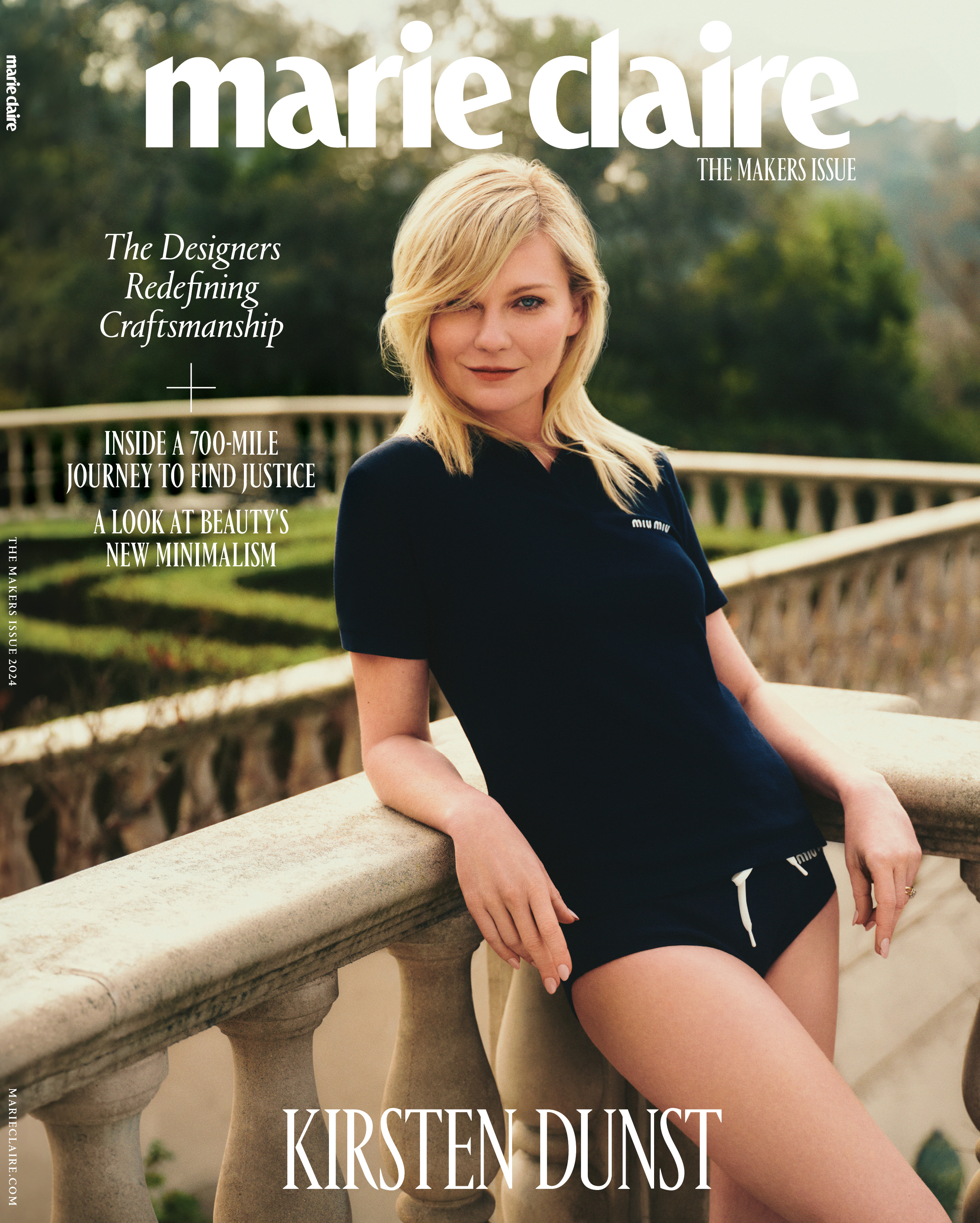Inside the Triumphant Return of 'The Wiz'
The famed show is back on Broadway, and with it, a dazzling new group of creatives. Before the curtains go up, writer Amber Ruffin gathers the cast to discuss the magic of making the musical.
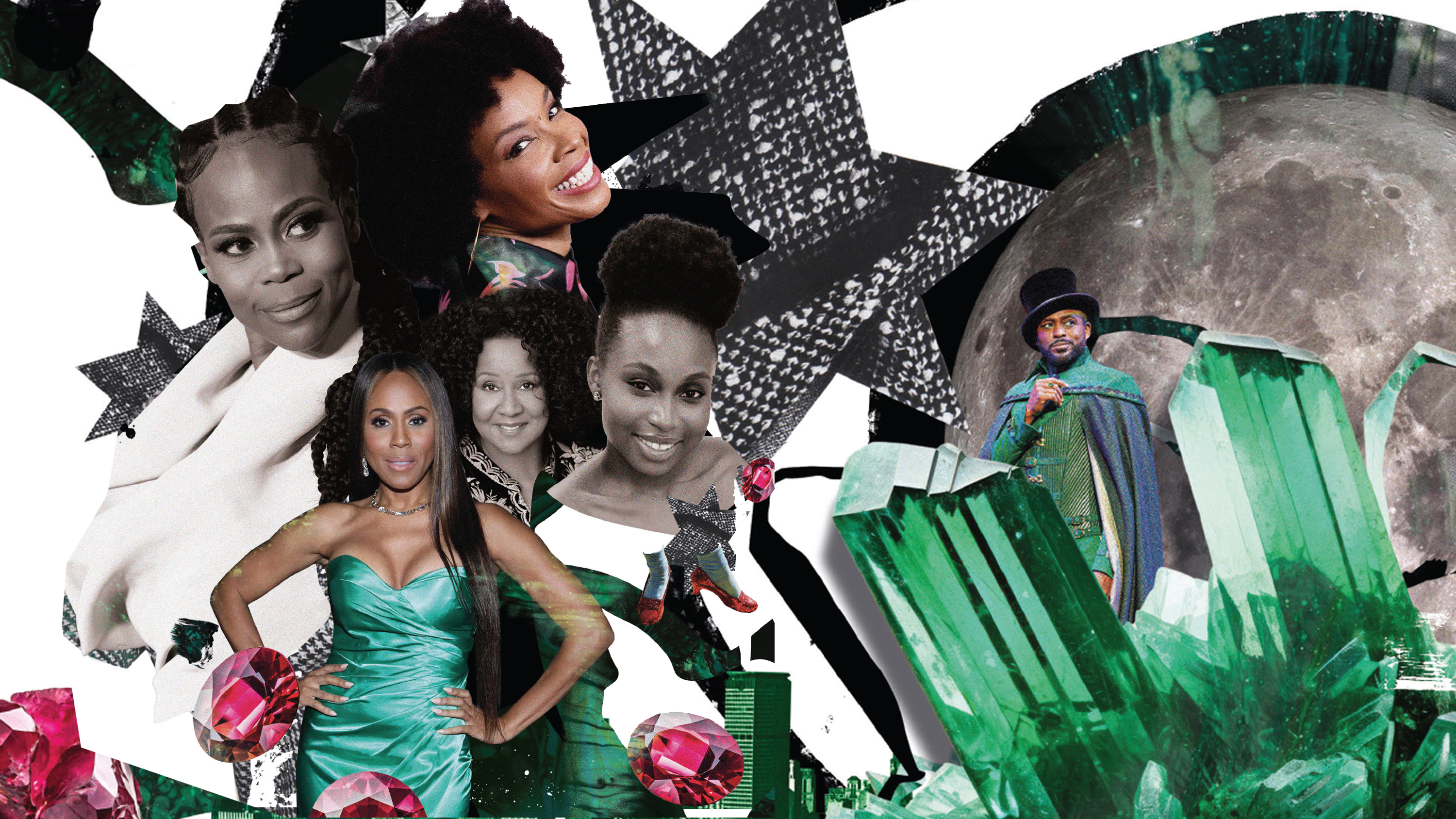
When The Wiz first arrived on Broadway in 1974, the stage musical—starring Stephanie Mills, Hinton Battle, and André De Shields—introduced a pop culture landmark that would go on to inspire generations of Black performers and creatives to dream in technicolor. The Afrofuturist adaptation of L. Frank Baum's The Wonderful Wizard of Oz was a bonafide cultural rite of passage thanks to its depiction of joyous liberation told through a soundtrack fueled by gospel and R&B. The way it allowed people of color to see themselves fully represented in fantasy storytelling, was a first—even before it was further cemented into history with its 1978 silver screen adaptation starring Diana Ross, Michael Jackson, and Lena Horne.
Now, 50 years after its premiere, The Wiz returns to The Great White Way. Writer Amber Ruffin, actresses Nichelle Lewis (Dorothy) and Deborah Cox (Glinda), scenic designer Hannah Beachler, and costume designer Sharen Davis, sat down to discuss their lifelong connections to the musical, the vision it took to remake a classic, and the power of bringing their full selves to creative work.
Amber Ruffin: We're going to have a round table of some of the most creative minds on the planet, but also my friends. [Let's] go around and introduce ourselves.
Sharen Davis: When the first play came out, it motivated me to go to school and major in theater. This is my first production for theater, and people were warning me, 'You're going to see the show over and over and over again, and you’re going to get so bored.' Well, I saw it last night, and I'm still not bored. I'm still like a child in there. Every time I see it, there’s something different, and it is still so magical.
Hannah Beachler: I worked with Schele [Williams, director] previously. We are from the same town. We saw this show as little girls in the same theater in Dayton, Ohio. I always say, 'Look what it has inspired two girls in the middle of nowhere to become.' So that's how important this musical is.
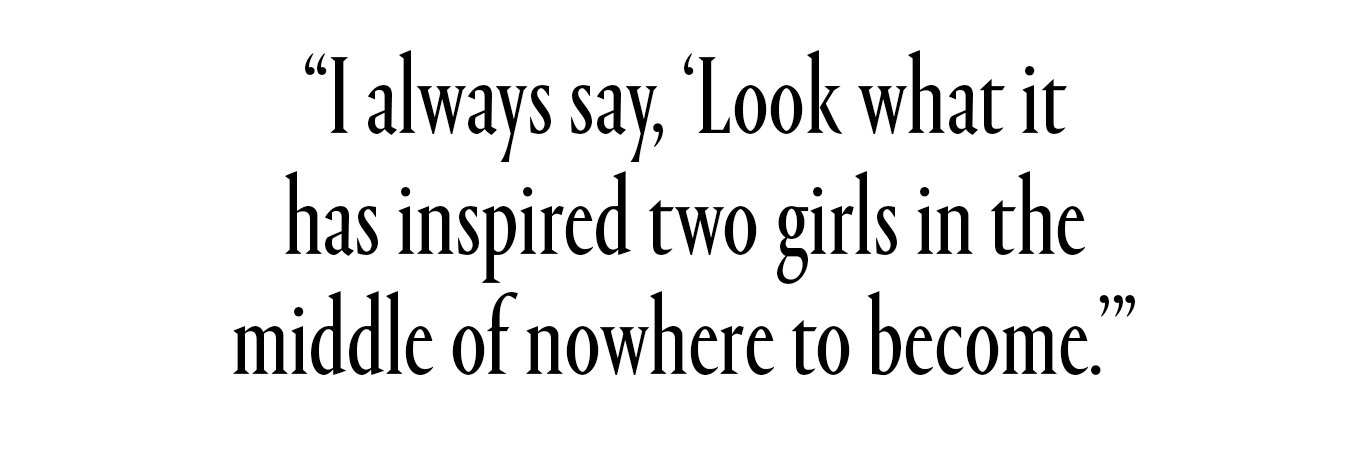
Nichelle Lewis: I've always felt that Dorothy is me in a way, because she's gone through so many things that all Black women and men and people of color...have gone through in life. She’s always resonated with me. At the end of that whole show when I sing "Home," it's something that I can relate to so much.
Deborah Cox: When I first saw the show, it blew my mind that you could actually dream, and be whimsical and funny, and not have to worry about fitting into a box. I felt like, Wow, that's me, because I'm the weird one in my family. I've always been that animated, crazy child, but very shy to sort of display that on a stage. The idea of playing a character that was going to give me license to be crazy was wonderful.
Get exclusive access to fashion and beauty trends, hot-off-the-press celebrity news, and more.
AR: I want to know, how do you make sure to honor the legacy of The Wiz while still putting your own spin on it and making sure it’s updated? Where was the line between staying true to the material and also building your own legacy?
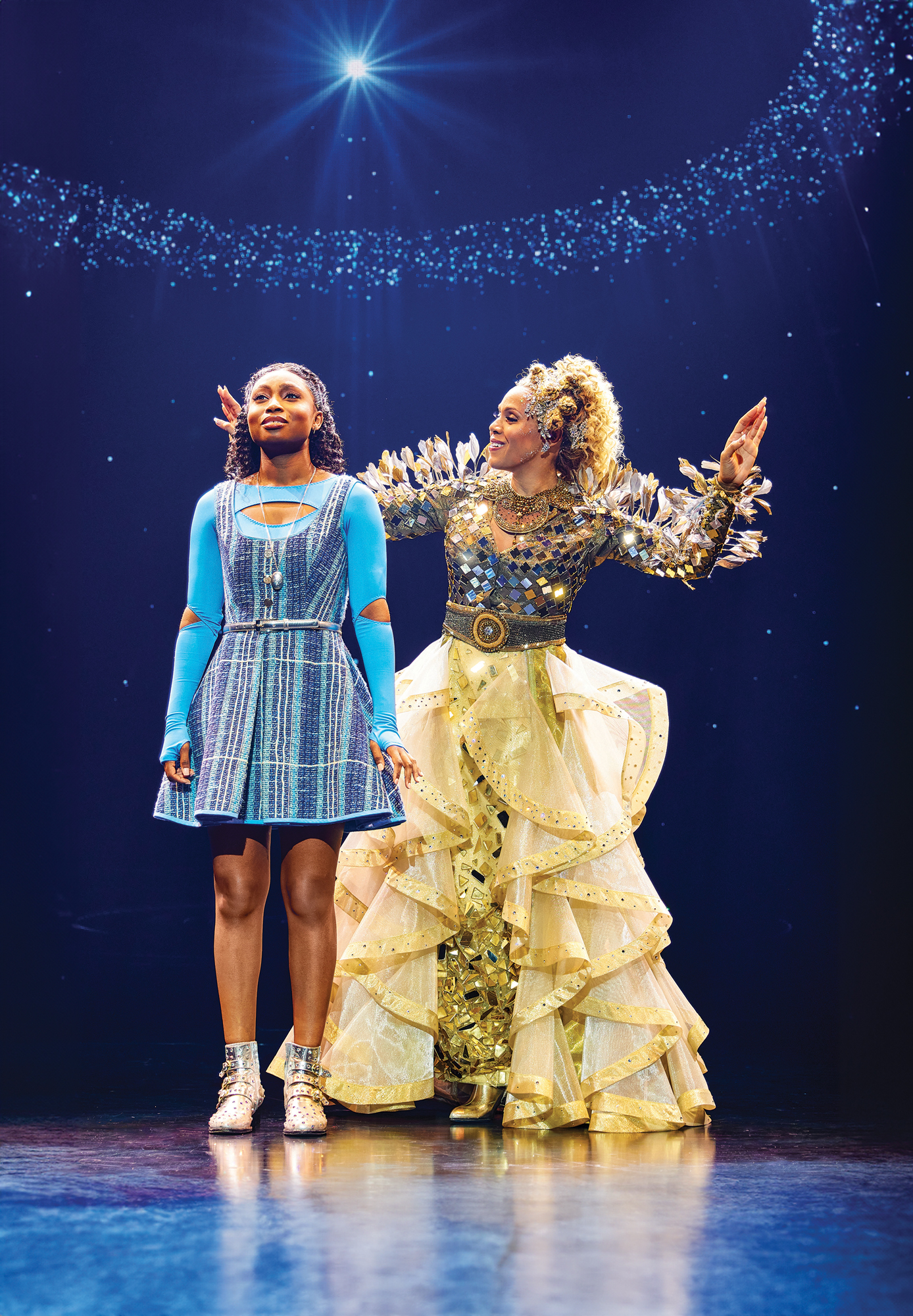
Dorothy (Nichelle Lewis) and Glinda (Deborah Cox) onstage.
HB: For me, it came in the evolution of Black culture. That was my guideline to how this show should be evolved from where it was. The first musical, when you look at the story and the aesthetic of it, was way ahead of its time. So it's like, how have we evolved as a community since then? Where are we now as far as aesthetic? How can I pay homage to that specific musical, and also to the history of Black culture and the Black community?
I wanted it to be beautiful and bright and take people's imagination, because that's what it did for me. It took my imagination and it really informed who I became. I'll never forget Stephanie Mills; I could not believe there was a Black woman up there on this stage, and everyone was looking at her and applauding. It was just pure magic. At 7 years old, that changes you on a molecular level. That opens you up to know that there's possibility. We say a lot, 'If you see it, you can be it,' but if you can feel it, you can be it. I wanted to bring that out.
AR: Deborah and Nichelle, when you found out you were going to play Glinda and Dorothy, what was that part in your brain that you had romanticized and then finally got to do on stage?
NL: The part that excites me the most is picking up all my friends, like the Scarecrow, the Lion, and the Tin Man. The boys are such jokesters and they always do different things every night. It's always something new and exciting.
DC: I was most excited with "He's the Wiz," because originally Glinda never sang any other songs outside of "Believe in Yourself." I always felt like Glinda's presence is hope and faith. She's everything that you want to be in your heart, and she's manifested through Dorothy's belief. During "He's The Wiz," there are moments where there's a call-and-answer with the cast. Working with Joseph [Joubert, music supervisor], I felt like that was a moment to really add camaraderie and display all the different types of jazz, because we hit on different styles of music.
That is the moment that I really take pleasure in, just being playful with Dorothy to help her come outside of herself. "Believe" was always a given, which meant really connecting with [Dorothy] and the audience and the essence of the show, which is, at the end of the day, you always have everything that you need in you to do whatever it is that you dream about.
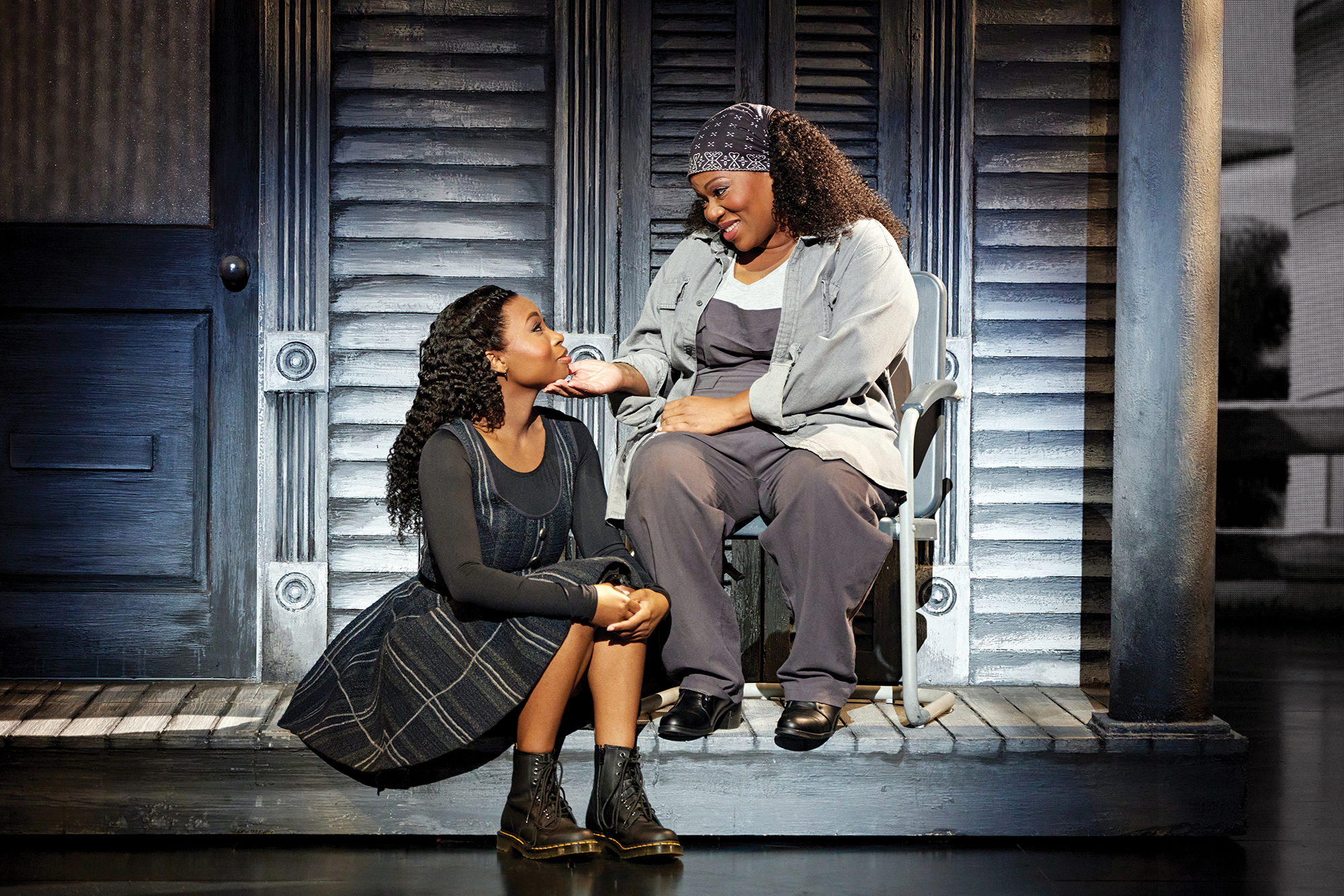
Dorothy in a scene with Aunt Em, played by Melody Betts.
AR: What was the collaboration process like for The Wiz, and what was it like working so closely with other people from different fields? For me, I've done a billion shows before and I've never been in a creative team that is so open. Everybody should be impossible to deal with, but no one had any ego. What was it like for you guys?
DC: Far too many times, I think, with Black entertainment, there's so much stacked against us anyway. We always have to just push through and always be a hundred times better than, so we kind of have no choice. It's like in our DNA, we just have to be great.
NL: This is my first Broadway show. I was so scared walking in the room the first time, all these amazing people in there, and I didn’t know what to do with myself. I remember going over to the snack table and being like, I'm going to stay over here. But when I was meeting everyone, they were all just so kind and welcoming. It felt grounding, and it felt immediately like, This is family.
I’ve done a lot of shows where it's very much a divide with Black and white people [in the cast]. Unfortunately, it just ended up being a little bit segregated in a way, which shouldn't have happened, but it did. So coming into this show, where everybody was just so connected, it felt like I was at my roots. It was so comforting and amazing.

HB: I’ve been lucky in the film industry because the person I work with most is also my really good friend, Ryan Coogler. We started out on a little $600,000 movie, and we're sleeping in cars and working 22 hours a day, just grinding. There wasn't room [for ego], and Ryan kept that culture. He had always said to me, 'You just need to be yourself. It doesn't matter what room you're in, because that's when people will appreciate and love you. If they don't want that from you, there's no reason to be upset or mad about it, they're just not for you.' I have found that in my community, I do feel safe and loved, and that helps me be creative. That helps me reach a higher height.
It's also being around such talent and such beauty. To me, the voice is the highest art form. When you can make a sound with your physical being and move someone to laughter or tears or reminiscence or joy, you hold the highest art. When you are amongst the best that do that, you can't help but be good.
SD: For me, the most engaging and incredible part of working is starting the fittings. I get to meet all these amazing, talented individuals and we get to collaborate on the costume. Even though I designed it already, everyone still has a say in how they feel, or if there should be a little tweak. Once I see someone physically, I can understand how the costume's going to work too. I really spent a lot of time with the ensemble, getting to know [them] and support whatever they needed.
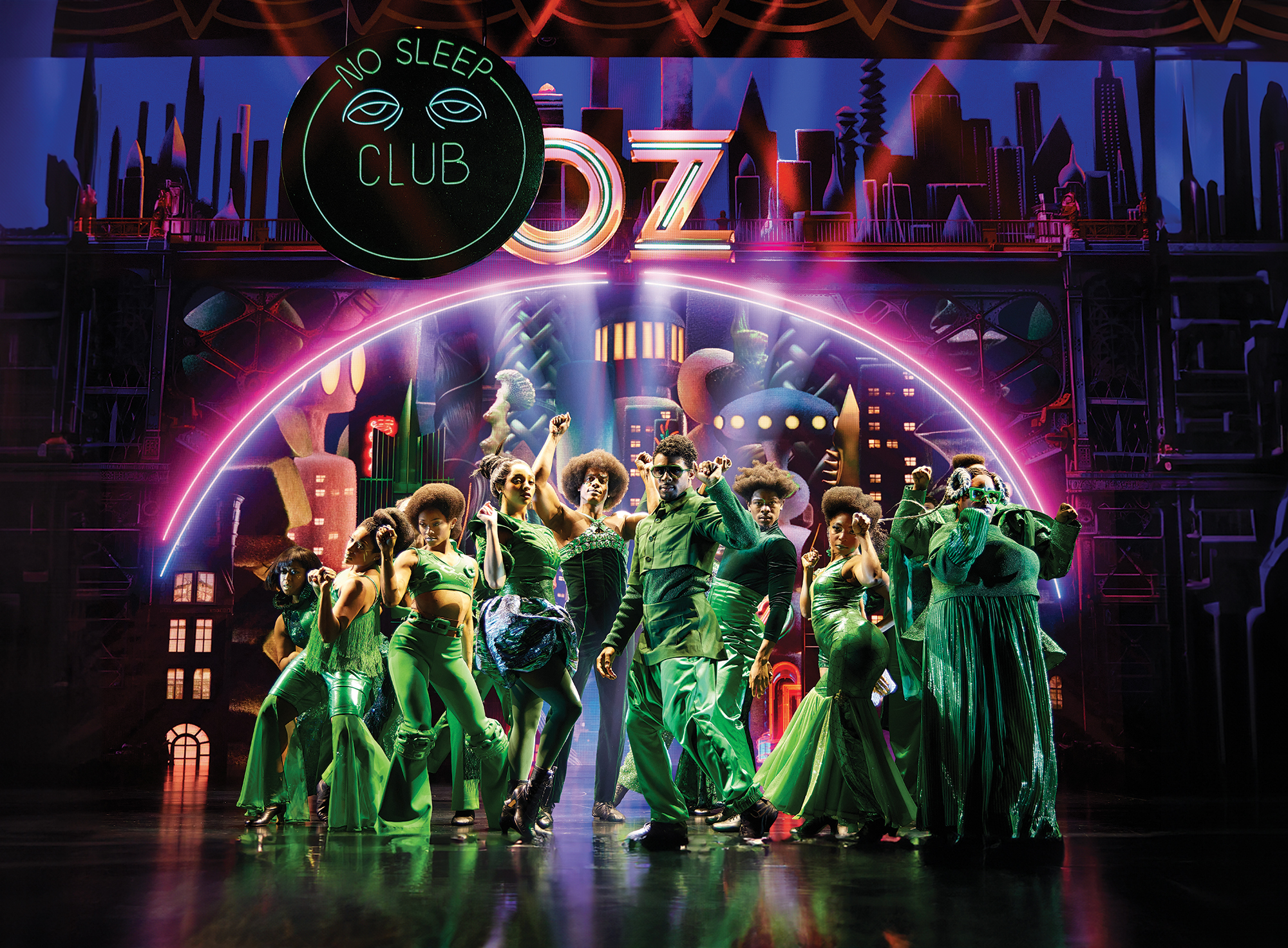
The striking new set of The Wiz.
DC: I actually have a question. What inspired the whole look of the show? It seems like, even though there are different characters, it's still stylized in a way that it's cohesive.
HB: It's Schele; she did something that is kind of rare for a director. Oftentimes, when people hire you, they put handcuffs on you. They're like, 'I like what you do, but I want you to do this other thing.' But Schele's like, 'You do what you do,' and then we'll come back and form it into this world that is in her mind. You can't help but feel the electricity when somebody is allowing you to bring out that light in the most creative form of your being. And then like Sharen was saying, when you hear the voices in the rehearsal and see the little things the cast are doing, then you get more ideas. You see the Scarecrow does that, and Dorothy is doing this, and the little looks she gives, or the little hand action. For us, that's all included.
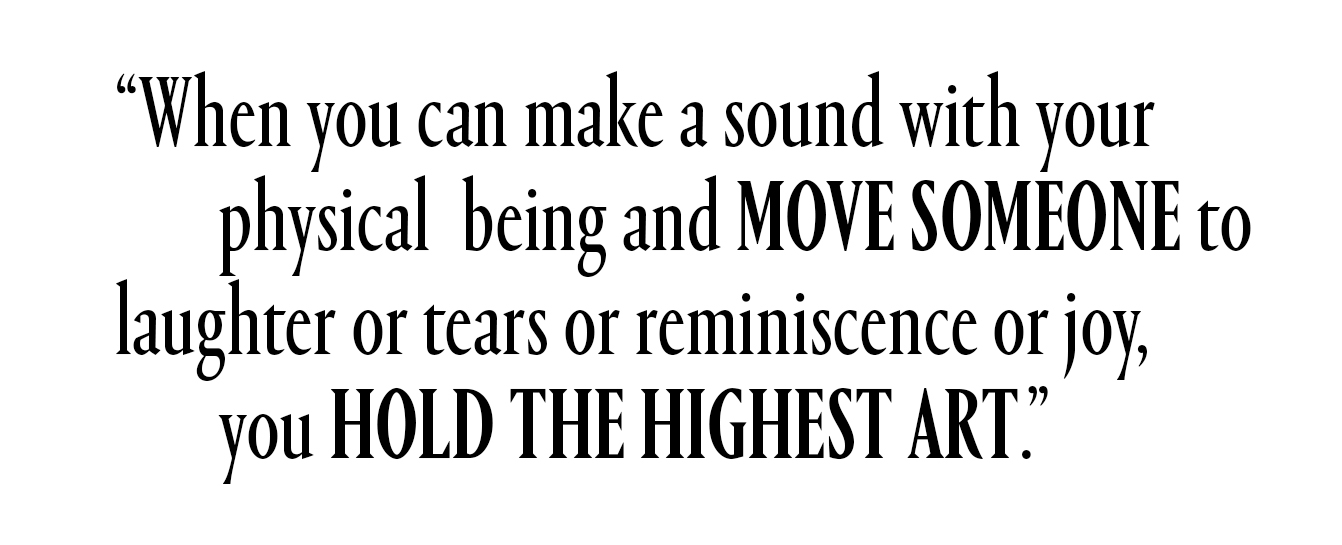
AR: Everyone got to do whatever they thought was too far. Then Schele was like, 'I want that to be where we start.' You can always mute something. You can always bring it back. But you should get used to feeling like you are in danger. To me, that's the best place to perform and where all the best comedy is: if you feel like something crazy is about to happen, like when you don’t know what the next thing is going to be. But anyway, what are some of the lessons that you all learned from putting this show together?
DC: I've learned that it takes time to figure out what the foundation of the character is, and then build from there. It's also important to not look at previous work—be inspired by it, but don't let that limit you moving forward. That's what I love about this Glinda. I feel like this is finally a Glinda that is very different from every other Glinda that we've all seen in every production of The Wizard of Oz. She's so different in aesthetic, and so is the show. It's very transcendent, so there's no timestamp on it. It really will live in its own time and place, and its own space. That's pretty remarkable. I'm honored to play a small part in it.
HB: I learned that there's a lot of long hours in that theater. On a film, you're like, come in. See the set. Looks great. Everybody's happy. Eat your breakfast burrito, and out the door to the next set. There's no time to really take it in, but here, there was something to me being present all the time.
I didn't even realize how much I was missing by not being present in the building of the production, through the cast, the song, the blocking, and every action. Seeing all that upped everything that I did. So my lesson now, when I go back to my industry: Take the time. Watch. Don’t be so busy. Be present. It's always going to get done, and it's always going to take care of itself.
I think a little bit of it, oddly enough, was that I suddenly saw myself as not the worker. I came up through the ranks as a carpenter where I'm looking at all the build [details], like, Oh, let's put this screw here. So that was my big lesson. Be present in the creative.

Dorothy with the Lion (Kyle Ramar Freeman), Tin Man (Phillip Johnson Richardson), and Scarecrow (Avery Wilson).
SD: I'm going to tag onto Hannah, because we both come from film, and we're so used to shooting it, and that's it. We move on. I had to learn the lesson that we're always present. We have to always be there. It's always evolving, and you've got to stay open to that. I finally have come to realize that I do have to constantly watch the show. I constantly need to change things as the talent changes, or we just see things that we need to update. I'm watching something different every night.
NL: One thing I've learned is that it's okay to play. Coming from a musical theater background, I always felt so boxed in, and that I had to be the one thing that they wanted or needed. Meeting with Schele, she's not the kind of person that's going to tell you who you need to be. She brought me into a room and she's like, 'Just go crazy and run around and fling your arms around the place and make noise.'
I had felt a little bit stuck when she had me do that, and it healed something that I didn't know I needed. You're always taught as a Black girl to be quiet. Especially in the South, you're always just muted. This was like something I've never experienced in my life, being loud and crazy and the center of attention. It was something I think I needed, especially for the show and this journey, to be able to show young girls and even older people that they can be loud and obnoxious and wild, and it's fine.
AR: I wrote the scene where they meet the Wiz, and it was a perfectly fine scene. It certainly did the job. But then Wayne Brady was like, 'It's not exactly right. It's not exactly what it should be.' He says, 'We both came up in improv. We both do comedy. Write what you would want to perform.' And then I went, Oh my God, I'll never write any other way. I was just like, What's the weirdest, funnest thing I could do? And I did it. So from then I just thought, If I am my greedy self playing this role, what would I want to do? What would make this a delight for me to step into every night? That's where I was coming from when I wrote this stuff—and I think it changed the show when he said that to me.
This interview has been edited and condensed for clarity.
Quinci LeGardye is a Culture Writer at Marie Claire. She currently lives in her hometown of Los Angeles after periods living in NYC and Albuquerque, where she earned a Bachelor’s degree in English and Psychology from The University of New Mexico. In 2021, she joined Marie Claire as a contributor, becoming a full-time writer for the brand in 2024. She contributes day-to-day-content covering television, movies, books, and pop culture in general. She has also written features, profiles, recaps, personal essays, and cultural criticism for outlets including Harper’s Bazaar, Elle, HuffPost, Teen Vogue, Vulture, The A.V. Club, Catapult, and others. When she isn't writing or checking Twitter way too often, you can find her watching the latest K-drama, or giving a concert performance in her car.
